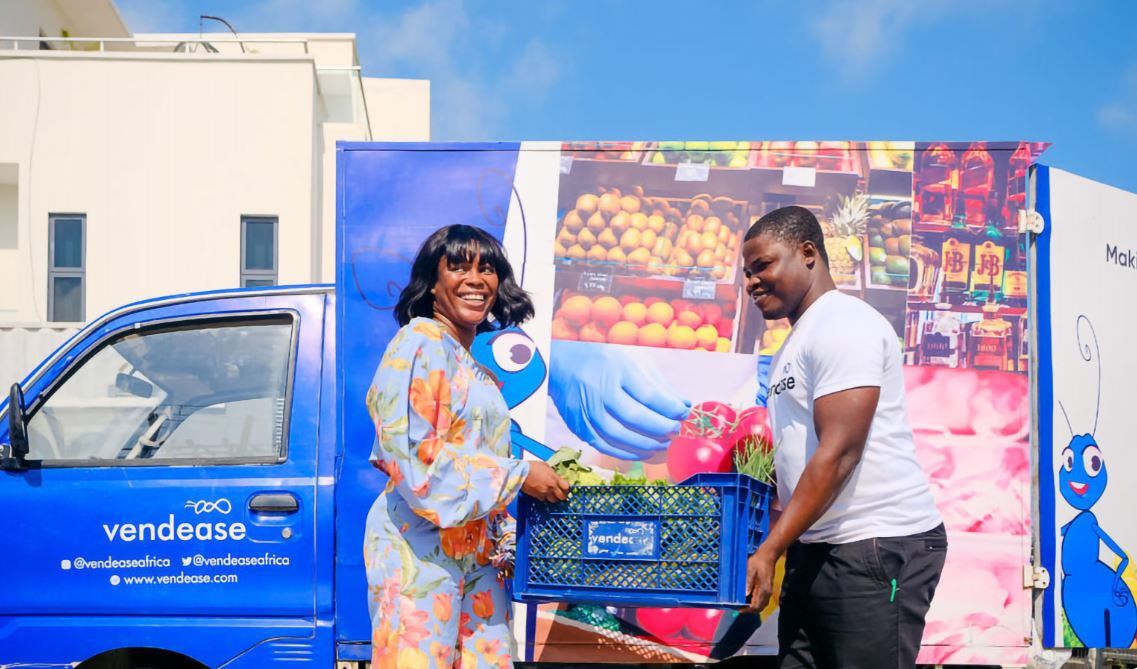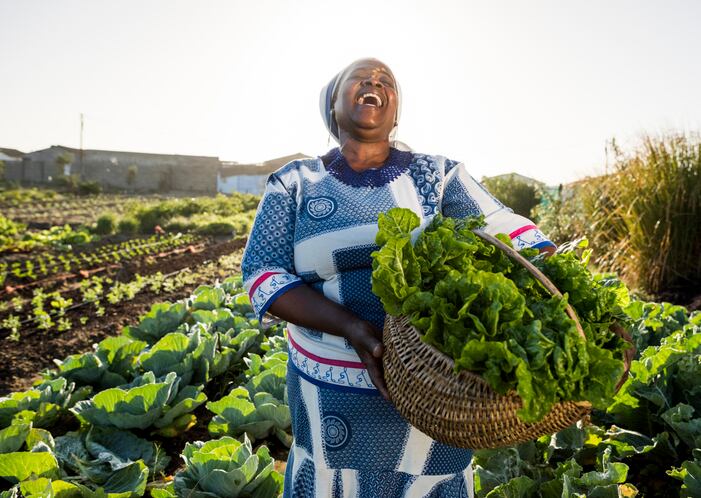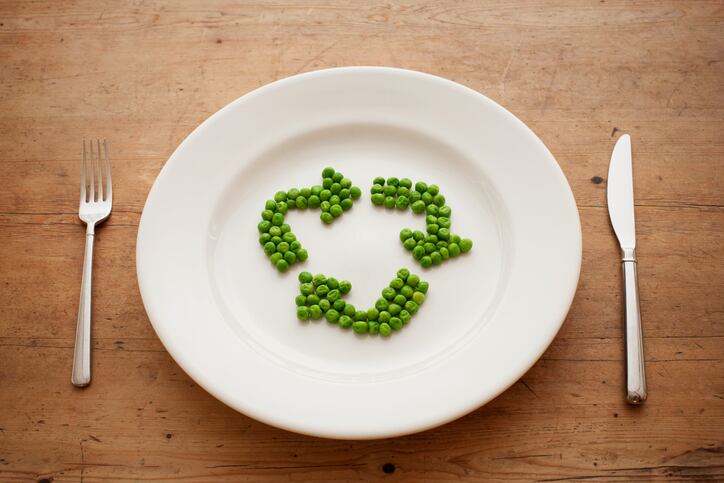Launched in 2020, Vendease’s digital platform aims to help food businesses across Africa procure supplies, access financial services, and streamline their business operations. Essentially, it is building the technology to more efficiently move food from where it is produced to where it is consumed, co-founder and CEO Tunde Kara, told us. “By leveraging digital technologies and deploying focused measures like digital marketplaces, remote sensing, and real-time data exchange, it becomes feasible to tackle the particular challenges in Nigeria and West Africa,” said Kara.
The African food system’s big problem is that food supply chains are currently not set up to maximize the potential of the food system. Poor positioning by food factories means they are sometimes running at below 50% of their installed capacity due to scarcity of quality raw materials and the capital to purchase them. “There is a need to effectively ensure that food processing factories have efficient flow of commodities,” noted Kara. “Vendease aims to contribute to food supply in Nigeria and West Africa in every way possible and our business model is in line with this. Vendease already provides resources for food processors in Nigeria as it has partnerships with over 20 food processors including rice mills, oil mills and animal feed mills in Nigeria. Under our commodities supply business category, we have so far supplied more than 20,000MT of paddy rice and about 10,000MT of maize and soybeans in the first half of 2023.”
Low food supply and the high cost of production is bad for shoppers' pockets. Consumers in Nigeria and West Africa spend up to 60% of their income on food, in contrast to the 10% spent by consumers in Europe and US. “Vendease is tackling these issues at micro-economic scales as we have automated for supplies to hotels and restaurants,” revealed Kara. “This significantly impacts the cost of procurement,” said Kara. “This system is scalable to further drive down the price of food.”
Food security, water scarcity and crop resilience
Food security, water scarcity and crop resilience are other challenges in the region. The main obstacles related to food security in Nigeria and West Africa, for example, include post-harvest losses, low agricultural productivity, poor infrastructure, and limited access to financial resources. “Digitization can help address these challenges by improving market access and reducing post-harvest losses,” observed Kara. “Establishment of digital platforms and marketplaces, farmers can connect directly with buyers, reducing the reliance on middlemen who serve as intermediaries and improving market access. Additionally, digital technologies can enable better storage and transportation systems, reducing post-harvest losses and ensuring that more food reaches consumers.”
Digitalization alone may not cure water scarcity – aggravated by climate change, inefficient irrigation practices, and poor management of water resources – but can help address the challenge, he added. “Digital platforms can facilitate the sharing of best practices for water management and conservation among farmers, promoting more efficient use of water resources.” The same is true for crop resilience, which is crucial for mitigating the impacts of climate change, pests, and diseases. “In Nigeria and West Africa, challenges to crop resilience include limited access to improved crop varieties, inadequate knowledge on pest and disease management, and the lack of real-time weather information. Digitization can help address these obstacles by providing farmers with access to climate-smart agriculture techniques, weather forecasts, and pest and disease alerts. This information can enable farmers to make informed decisions regarding crop selection, timing of planting and harvesting, and pest management, thereby enhancing crop resilience.”
The growing importance of African food-tech
Vendease has secured over $33m in funding to date. “Our priorities are three-pronged covering growth and expansion: investing in the right talents; building innovative products for restaurants that bridge the gap along the food ecosystem value chain, and scale our operations in the cities we operate in,” Kara said.
The company is also among the seven African companies on the World Economic Forum’s list of 100 ‘technology pioneers’ in the world in 2023. The recognition will help boost the African food-tech space as a whole, believes Kara.
“Overall, the WEF recognition can serve as a catalyst for growth, collaboration, and innovation in the African food-tech space. It can help raise the profile of the sector, attract investment, foster partnerships, and drive positive change in addressing food security, sustainable agriculture, and related challenges across the continent.
“As a pioneering food-tech company Vendease is proud to be recognised by the WEF as this demonstrates our dedication to addressing urgent issues within the African food industry, specifically focusing on reducing food waste and promoting product innovation throughout the food services ecosystem, encompassing both the demand and supply aspects.”





